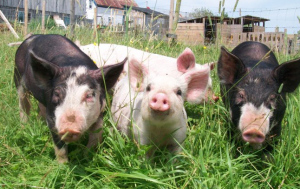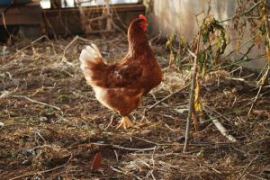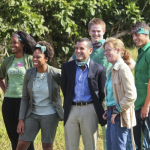I’m sure many people have heard the term fracking in the media lately. So what is fracking and how does it impact our lives and our food system?
Fracking is a term used for hydraulic fracturing, which is a method used to obtain natural gas from shale rock.
In order to access the natural gas, large amounts of water, mixed with sand and chemicals are pumped into the ground under pressure in order to fracture the shale rock below the surface. Once the shale rock is cracked, natural gas flows into wells through the created fractures (1).
How does fracking affect us?
There are many detrimental impacts of fracking such as vast amounts of water being used, up to as much as 18 million gallons of water per fracking. The large amount of water consumed by fracking takes away the ability to use fresh water for other means such as agriculture. However, fracking can also affect communities as highlighted in an article describing a community well gone dry due to drought and fracking (2).
Fracking also produces large amounts of contaminated water, and although some of the water can be recycled, there still remains a large quantity of contaminated fluid that must be disposed of. This fluid is often just pumped back into the ground and sealed, which sounds like an accident waiting happen, as this method has also been speculated to cause seismic activity where this practice has occurred. Thus a leak is resulting in spilled contaminated water is likely to occur (3).
What is the impact on food and economy?
The pollutants mixed in the water are known carcinogens, such as mercury, uranium, and radium. Contaminated water can leak into the environment through accidental spills, or faulty wells, but can also occur as contaminated water leaches out through the system and into the local supply (4).
Livestock that have come into contact with this water have had serious adverse effects such as difficulty breeding and higher rates of birth defects and stillborn calves. However, contact with fracking fluids has also led to death in livestock . I think it would be safe to assume that this effect on livestock could also translate into health complications to humans who come into contact with this fluid (5).
Fracking also hurts local farmers and the economy, as the gains from fracking are only temporary. Unlike farming which can be sustained over time, fracking halts once the available natural gases are obtained. In the process of fracking if the local land is also damaged, it can no longer be used as a source for producing healthy food. I think it would also be safe to assume that food produced on contaminated land would have a detrimental impact on health.
Fracking can also affect the local ecology; for instance, if a local fishing stream were to become contaminated through fracking, this potential food source would no longer be available to the community. Roads built for transport further degrade the land and displace other wildlife that may be used as a food source.
Author: Aubrey Bergen. Nursing Student, Dalhousie University.





